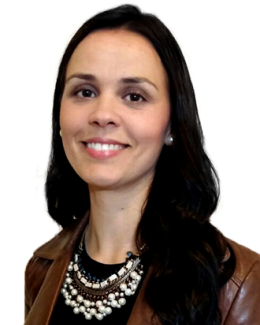Prof. Carla Morais

Prof Carla Morais, the director of the Doctoral Program in Science Education and Communication.
She has a degree in Chemistry, a Master in Multimedia Education, a Ph.D., and a Habilitation in Science Education and Communication from the Faculty of Science of the University of Porto (FCUP). She is an Assistant Professor with Habilitation and a member of the Science Education Unit at the same Faculty. She is a member of the Coordinating Committee of the Chemistry Research Center of the University of Porto (CIQUP), where she coordinates the research group “RT5: Education, Science Communication and Society”.
She is also a member of the Associated Laboratory Institute of Molecular Sciences (IMS), where she represents CIQUP in the “LT: CHEMfocus (fundamentals and awareness)”. She is the director of the Doctoral Program in Science Education and Communication, and she was a member of the founding committee, as well as the first director of the Master in Science Education and Communication. She is the coordinator of the specialization in Education of the Master in Multimedia, and the tutor of the Education area of the Ph.D. Program in Digital Media (UT Austin | Portugal) of the University of Porto.
She is a member of the Scientific Committee of those courses. She has supervised or co-supervised numerous dissertations in the areas of Science Education and Communication (Chemistry) and Educational Technology. She is engaged, as a trainer, in the development of courses on Continuing Education for teachers. She has published articles in national and international journals and has presented lectures in schools, conferences, and scientific meetings in the field of Chemistry Education and Communication and the use of educational technologies. She is a co-author of textbooks, popular science books, and educational software for Chemistry and Physics teaching. Her areas of interest include professional development and pedagogic practices for Physics and Chemistry teachers; Communication models and processes for scientific knowledge and the involvement and participation of citizens in Science; technological and digital ecologies in Science Education and Communication.